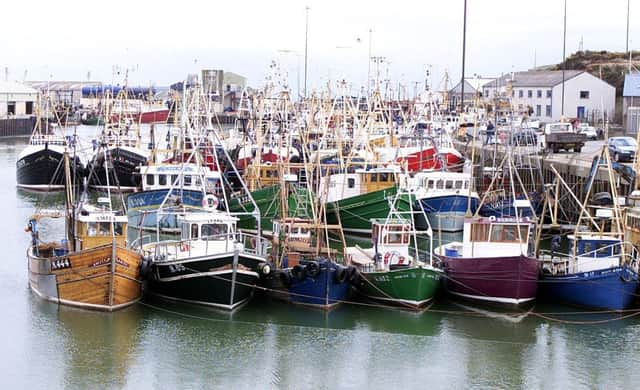Fishing industry needs more than quota changes for a post-Brexit boost


The Committee calls on the Government to invest in the Northern Ireland fishing sector and act to tackle crushing manpower shortages. The report also warns that the Government must be prepared to take decisions on fisheries policy for Northern Ireland post-Brexit if there is no Executive in place to do so.
Publishing the report, Committee Chair Dr Andrew Murrison MP commented: “Fishermen believe Brexit will be a shot in the arm for their industry. We heard pleas for increased quota and action to alleviate crewing shortages in the Northern Ireland fleet.
Advertisement
Hide AdAdvertisement
Hide Ad“The Government’s fisheries white paper is a step in the right direction but more detail is needed on how quota allocations will change. The industry also needs to be reassured that the Government will be ready to support them in the unlikely and undesirable event of no deal.
“The Government must now take action on Ireland’s unilateral suspension of the Voisinage Arrangement and on the long-running dispute over Lough Foyle.
“We found an industry in Northern Ireland with great people and huge potential, but it is fragile. Changes to quotas and access to waters aren’t enough. We must develop infrastructure to support the Northern Ireland fishing fleet, find crews for boats and enable fishing businesses to sell into Europe post Brexit.”
Quotas and fishing rights
The Committee welcomes the Government’s intention to move away from the present EU system of allocation of fishing quotas under relative stability. The Government’s White Paper indicates a move towards the zonal attachment measure, however it remains unclear how this will change the status quo for the Northern Ireland fleet.
Advertisement
Hide AdAdvertisement
Hide AdThe Government must set out how it intends to redistribute fishing opportunities in UK waters. This should include its projections for how quota allocation would differ under a zonal attachment model. It should also include the criteria under which foreign vessels will be able fish in UK waters.
Access to markets
Increases in the volume and type of fish that can be caught will only benefit the Northern Ireland fishing fleet if they are able to secure markets for this catch. The imposition of tariffs, as well as physical or bureaucratic barriers to the quick and easy movement of produce, could be highly detrimental to the competitiveness of the industry. Fisherman of non-quota shellfish species would be particularly vulnerable as they would suffer an increase in costs without the benefit of an increase in catches.
The Government should ensure that any future trade agreement with the EU includes reciprocal tariff-free trade in fish and fisheries products, mutual recognition of standards, and streamlined export processes. This should include which directives will be included in the common rulebook, reducing the regulatory burden.
No Deal
As there is no certainty that a deal with the EU will be agreed, it is vital that the consequences of no deal are understood and planned for. The Government must indicate the planning in place to support imports and exports, timetable for delivering a new IT system capable of providing catch certificates for all UK fisheries trade.
Arrangements with
Ireland
Advertisement
Hide AdAdvertisement
Hide AdThere is significant potential for disagreement with Ireland over fishing rights and the managements of the marine environment. Ireland’s unilateral suspension of the Voisinage Arrangement has already created hardship to fishermen restricted from their habitual fishing grounds. The UK Government must do all it can to diminish such disagreements, and establish talks to reinstate reciprocal access to waters. However, if no agreement can be reached they must discontinue access to UK waters for Irish vessels by 30 March 2019.
Disputes over maritime boundaries have caused significant environmental damage in the Lough Foyle area. An agreement must be found with the Irish Government that will allow the Loughs Agency to enforce its powers and protect the area.
Labour force
Existing labour pressures pose a significant threat to fishing businesses. Experienced and qualified crew are needed simply to maintain the current Northern Ireland fleet, and the need would become greater still if the fleet is to take advantage of increased quotas.
The Government should replicate measures taken in 2010, where a time limited immigration concession was made for non-EU/EEA crew. In the long-term, the Government should establish a visa pathway to allow the crewing of boats by non-EU/EEA outside of the present 6-mile limit.